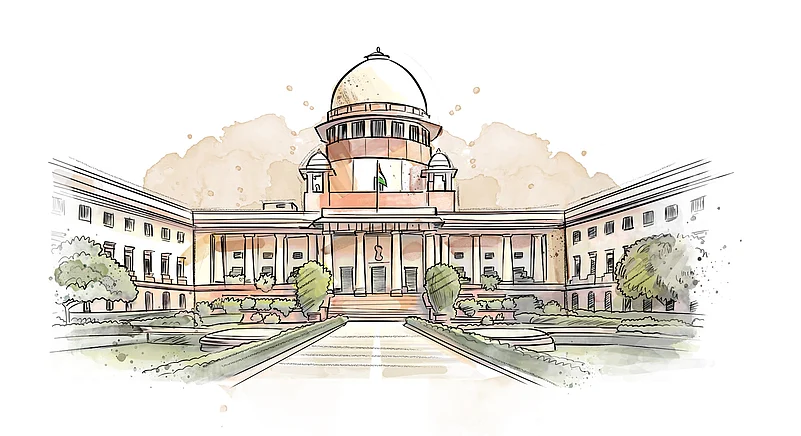Retiring Supreme Court judge Abhay Shreeniwas Oka reportedly made an important observation on his last day at work today. According to the Bar and Bench, the Supreme Court judge said the apex court has become Chief Justice-centric which needs a quick reform.
"Supreme Court is a chief justice centric court and it needs to change. Supreme Court has about 34 judges from different parts of the country and that should be reflected," he said.
Moreover, Justice Oka also implied that the reform is likely to take place under the new Chief Justice, BR Gavai, who took charge earlier this month and will remain in the post until his retirement in November.
Speaking at his farewell organised by the Supreme Court Bar Association, Justice Oka said High Courts function more democratically than the Supreme Court.
"The high courts function through committees, while the Supreme Court is Chief Justice of India-centric Court. It needs to change. You will see this change with the new CJI," he said while adding, "I am very happy that Chief Justice Sanjiv Khanna (who retired on May 13) took us forward on the path of transparency. He took decisions taking every judge of the Supreme Court into confidence. Justice Gavai has democratic values in his blood."
Besides, the SC judge also highlighted other areas in the judiciary that still needs improvisation. "We should also think about trial courts and the common man. There are too many cases pending in our trial and district courts. Never call a trial court a subordinate court. This is against constitutional values. Appeals have been pending for 25 years. Courts like Allahabad are working at half the number. It is a difficult task to punish someone after 20 years," he said.
Underscoring the importance of Artificial Intelligence (AI) for listing of cases filed before the Supreme Court, he said, "People complain any cases are list in next day and why cases are pending after so many days. We cannot have better listing unless we reduce manual intervention to minimum. Use of AI can help in rational listing."
Recalling his judicial journey, Justice Oka said, "Judges have the freedom to do justice and you don't have that freedom when you are no longer a judge. After 21 years and nine months, and having been a judge of three constitutional courts, judgeship becomes life and life becomes judgeship."
He emphasised that he had no regrets that he became a judge and gave up what would have probably been a more financially rewarding career
"When a successful lawyer becomes a judge., they say one sacrifices. I don't accept this. When you join the judiciary, you may not get that income, but the work satisfaction you get cannot be compared to the income of a lawyer," he said.
"Once you become a judge, only the Constitution and conscience govern you... In my long innings as a judge, I have never given a dissenting judgment," he added.
















